An Evolving Response to Help the World's Most Vulnerable People
The COVID-19 pandemic, now almost a year old, has exposed cracks in societies around the globe. Vulnerable communities already facing deep inequities in health, livelihoods, nutrition, and other indicators of well-being, are suffering the most.
Initially, lockdowns and safety concerns forced Helen Keller Intl to pause vital activities like vision screenings and delivery of immunity-building and life-saving treatments. But with our programs more important than ever to underserved communities, we had to find ways to safely get back to work. Continually adapting to changing conditions on the ground, we have developed innovative ways to meet the demands of the moment.
The Hunger Crisis is Growing
The COVID-19 pandemic is exacerbating inequality around the world. Forecasts for increased poverty and hunger are grim. The World Bank warns that 100 million more people could be pushed into extreme poverty this year. This would raise the poverty rate for the first time in more than two decades. The number of children going hungry and facing malnutrition is predicted to double in the year ahead.
We are working not only to prevent COVID-19 transmission in vulnerable communities, but also to increase resilience to COVID’s tidal wave of hunger. One way we are doing this is by intensifying our support for local farming and family gardens that produce nutritious foods. For example, we are working with home gardeners in at-risk communities to improve their yields and the diversity of their food. And we are distributing fast-growing seeds and saplings to households that have lost income and can no longer afford to buy food.
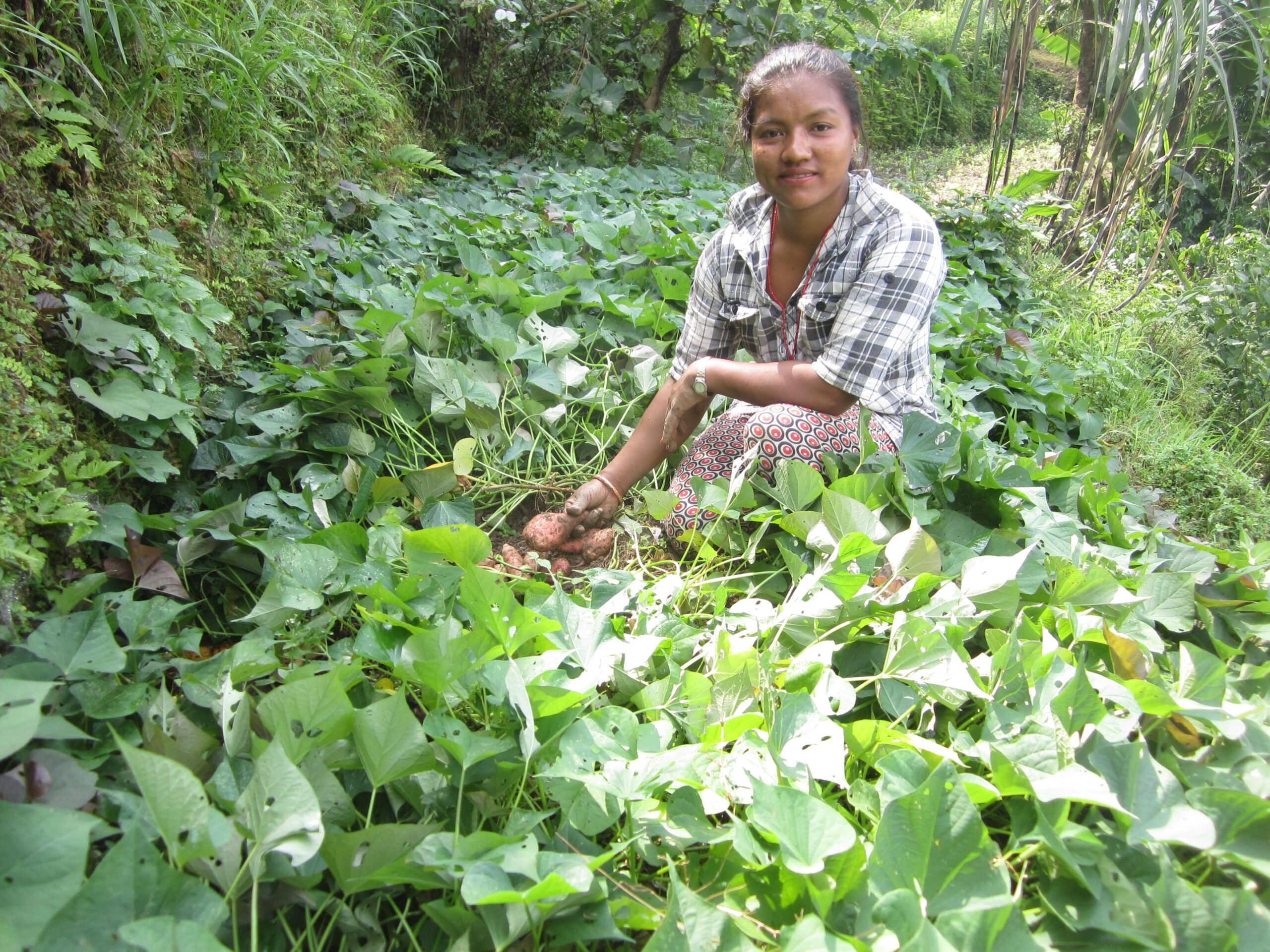
Also, we are providing cash assistance to families so that they can invest in income-generating activities. In some areas, small financial infusions can help tremendously. For example, in Bangladesh, Amanul and Ayesha Begum used their cash grant to double the plot of land they lease, elevate it to protect it from the rain, and buy seeds and seedlings. They also purchased medicine, soap, and other household essentials for their two daughters. Now, Amanul is selling spinach in the local market. He’ll be able to use the profit to reinvest in the land.
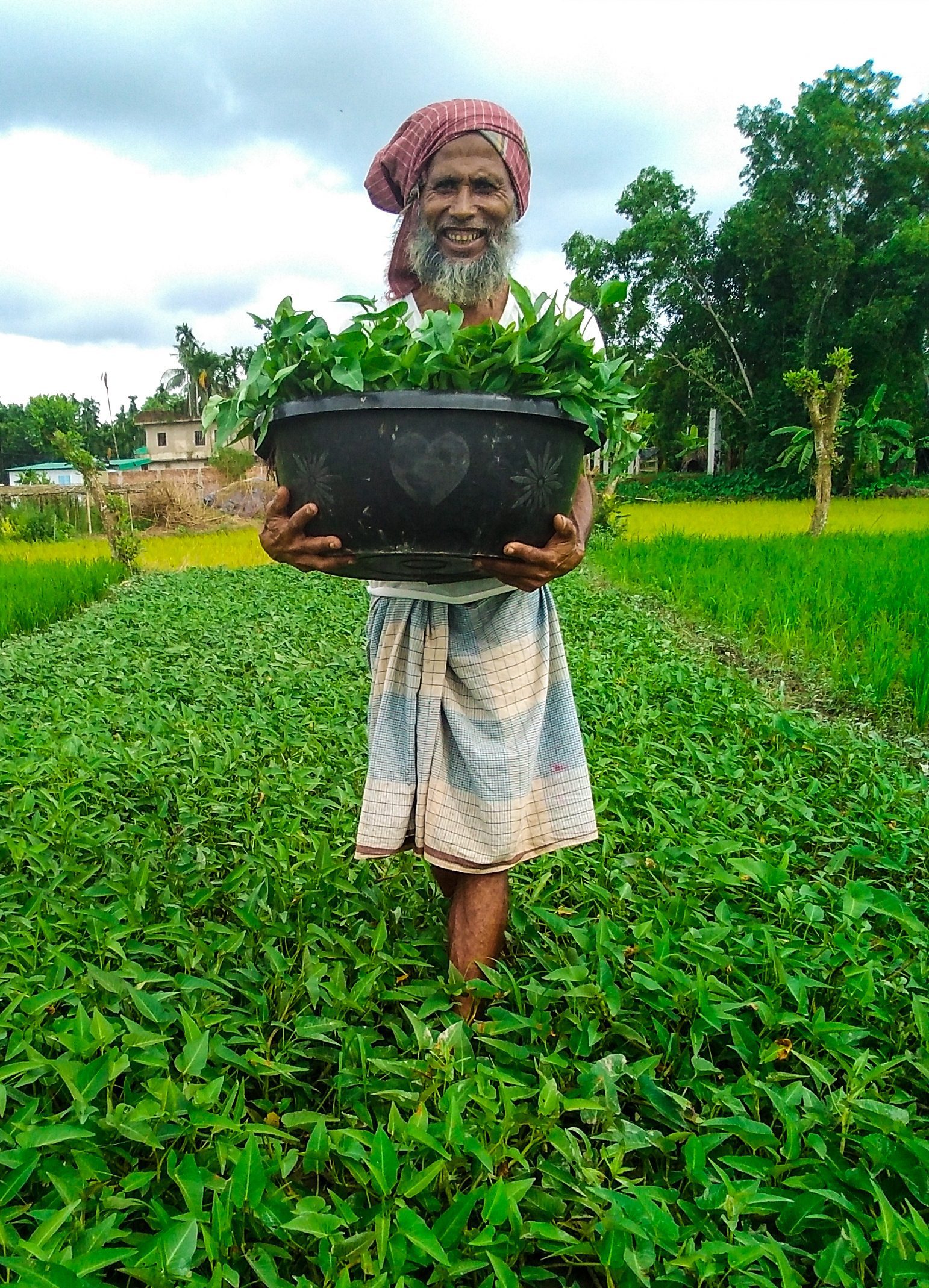
We are also continuing to host cooking demonstrations. These demonstrations teach families how to prepare nutritious meals for children from affordable, locally sourced ingredients. In order to keep people safe, the demonstrations are outdoors and socially distanced.
Delivering Immunity-Boosting Vitamin A
Studies show that providing vitamin A supplementation to children up to five years of age can decrease child mortality by almost a quarter. Helen Keller Intl is a pioneer in supporting this life-saving intervention. We work in regions where micronutrient deficiency can cause blindness and forestall a child’s resilience to disease. In the early days of the pandemic, public health organizations and governments determined that vitamin A supplementation campaigns could not be safely conducted. Plans for spring campaigns ground to a halt. Because of their enormous value, however, it was urgent to resume campaigns as soon as possible.
As part of GAVA (Global Alliance on Vitamin A), Helen Keller developed guidelines for safe distribution of vitamin A. These guidelines shaped how Helen Keller and sister organizations shifted gears. Early in the summer, we pivoted from campaigns that administered vitamin A en masse via special gatherings, to campaigns that administered vitamin A household by household, one community at a time. Wearing protective equipment and maintaining social distancing allowed us to reach millions of children in Burkina Faso, Côte d’Ivoire, Guinea, Kenya, Mali, Niger, and Nigeria. This puts them on the path to developing healthy immune systems.
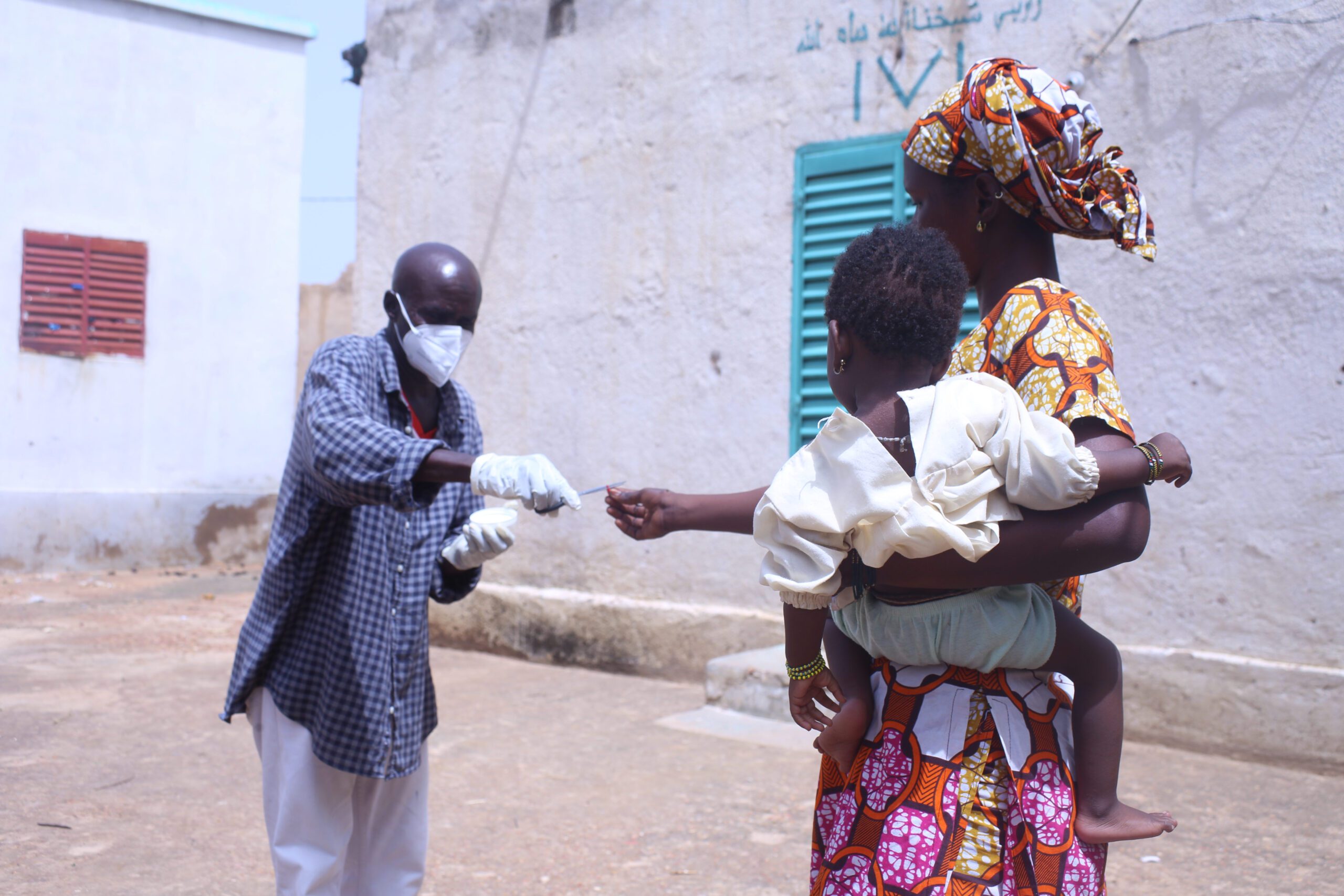
Meanwhile, colleagues in Cameroon, Mozambique and Senegal use a “routine” rather than campaign model of distribution. This means that they work closely with health clinics and health workers to deliver vitamin A supplementation as part of an integrated package of pediatric healthcare, including screening for malnutrition. Unfortunately, there were several months during which parents were hesitant to bring their children to health clinics for fear of catching COVID-19. We are increasing our outreach in order to encourage people to come in for essential care. We are assuring patient and staff safety through social distancing, temperature checks, personal protective equipment, and other measures.
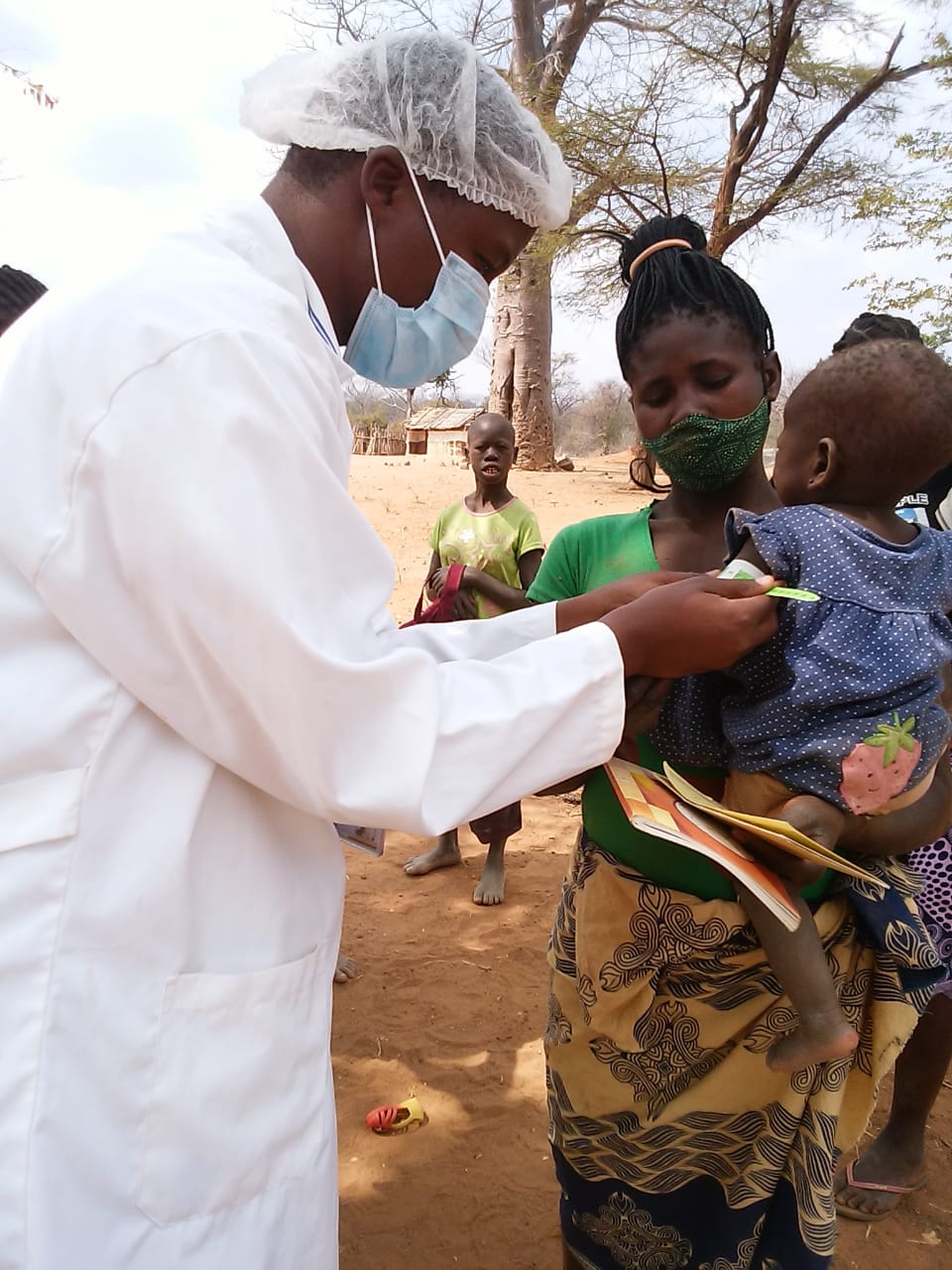
Preventing and Treating Neglected Tropical Diseases
Neglected tropical diseases (NTDs) are a group of preventable maladies that can cause blindness, painful physical deformities, and disabilities. They disproportionately affect people living in poverty and who lack access to basic health care. These “diseases of poverty” have been virtually eliminated in higher wealth areas or addressed successfully with medication and surgery. Meanwhile, those in lower income, vulnerable regions of the world continue to suffer from these preventable diseases. Helen Keller Intl works with national governments, the World Health Organization, and partners to control and eliminate these diseases.
Critical to this effort is our support of mass drug administration, a safe and effective way of distributing medicines to large populations that are at greatest risk. These are multi-year efforts that depend on consistently delivering the same drugs each year, until the targeted diseases are eliminated or controlled. Failure to comply with the schedule can set efforts towards these important goals back tremendously.
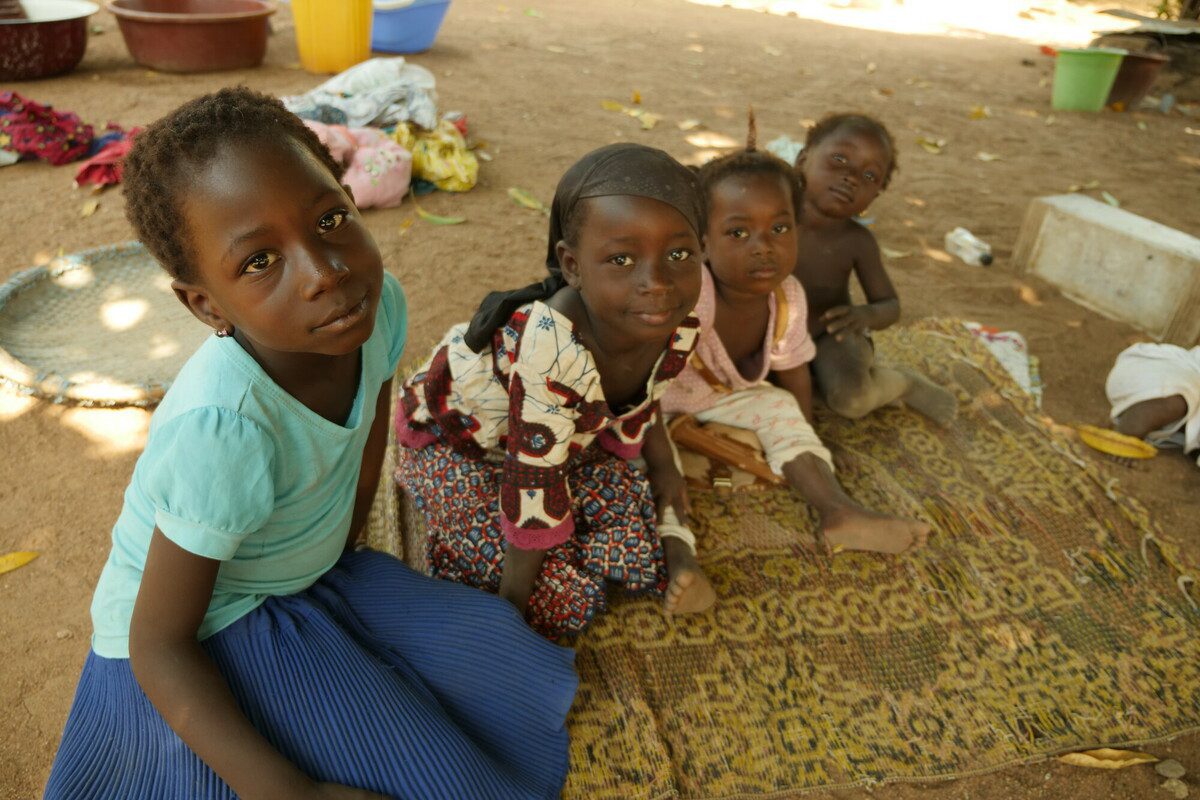
Donate now to provide vulnerable families around the world with the essential resources and information they need to protect themselves in the face of crisis – and beyond.
So, we developed comprehensive plans for safely restarting mass drug administrations, in partnership with each country’s neglected tropical diseases program. We submitted the plans to our primary donor, USAID, who allowed us to restart efforts in Guinea. (USAID funds the Act to End NTDs | West program, led by FHI360, through which we implement our NTD programs in seven countries.) More than four million people were treated in the subsequent mass drug administration campaign in Guinea. Encouraged by this success, USAID approved the resumption of field activities in all countries where Helen Keller works under Act to End NTDs | West. So far, mass drug administrations have been completed in Niger and are underway in Burkina Faso. Made possible by the END Fund, we have also supported a mass drug administration campaign in Nigeria.
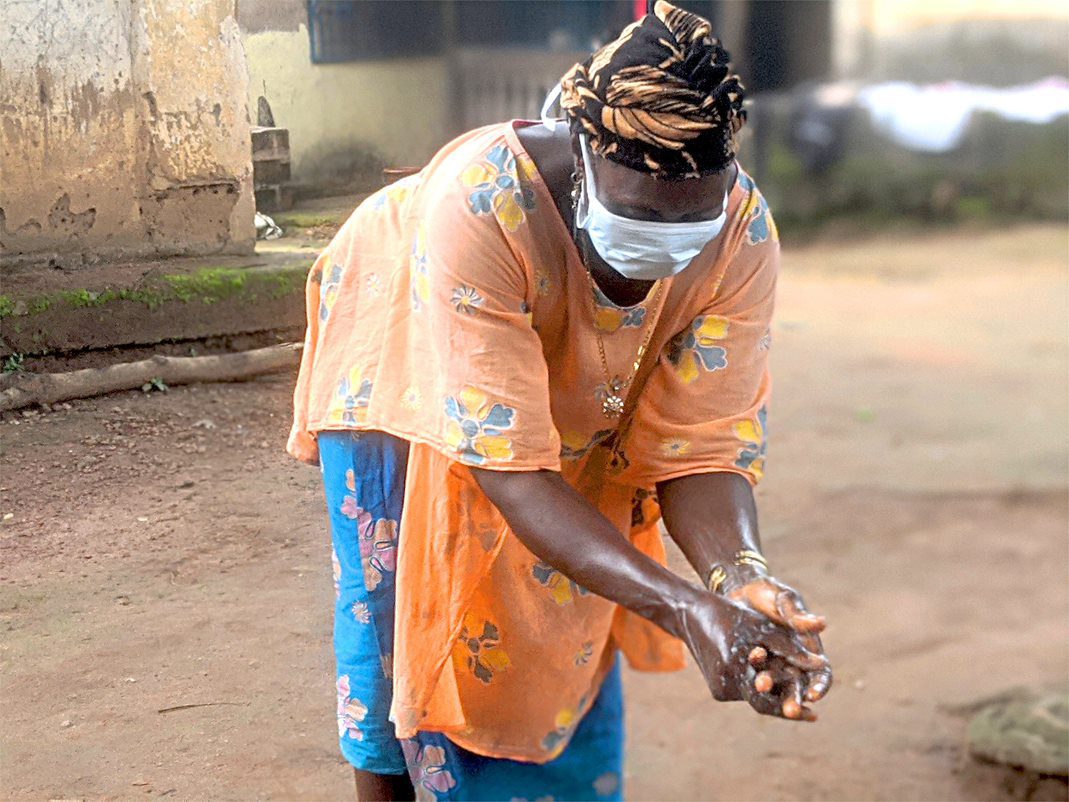
Following good hand hygiene is a way to prevent the spread of COVID-19 and the neglected tropical disease, trachoma, as well as other diseases. That’s why, in addition to our campaigns, we are providing handwashing kits throughout West Africa. The kits feature large water receptacles with taps at a height that children can comfortably reach. And, of course, the kits have soap, which can be hard to come by in some of the areas in which we work.
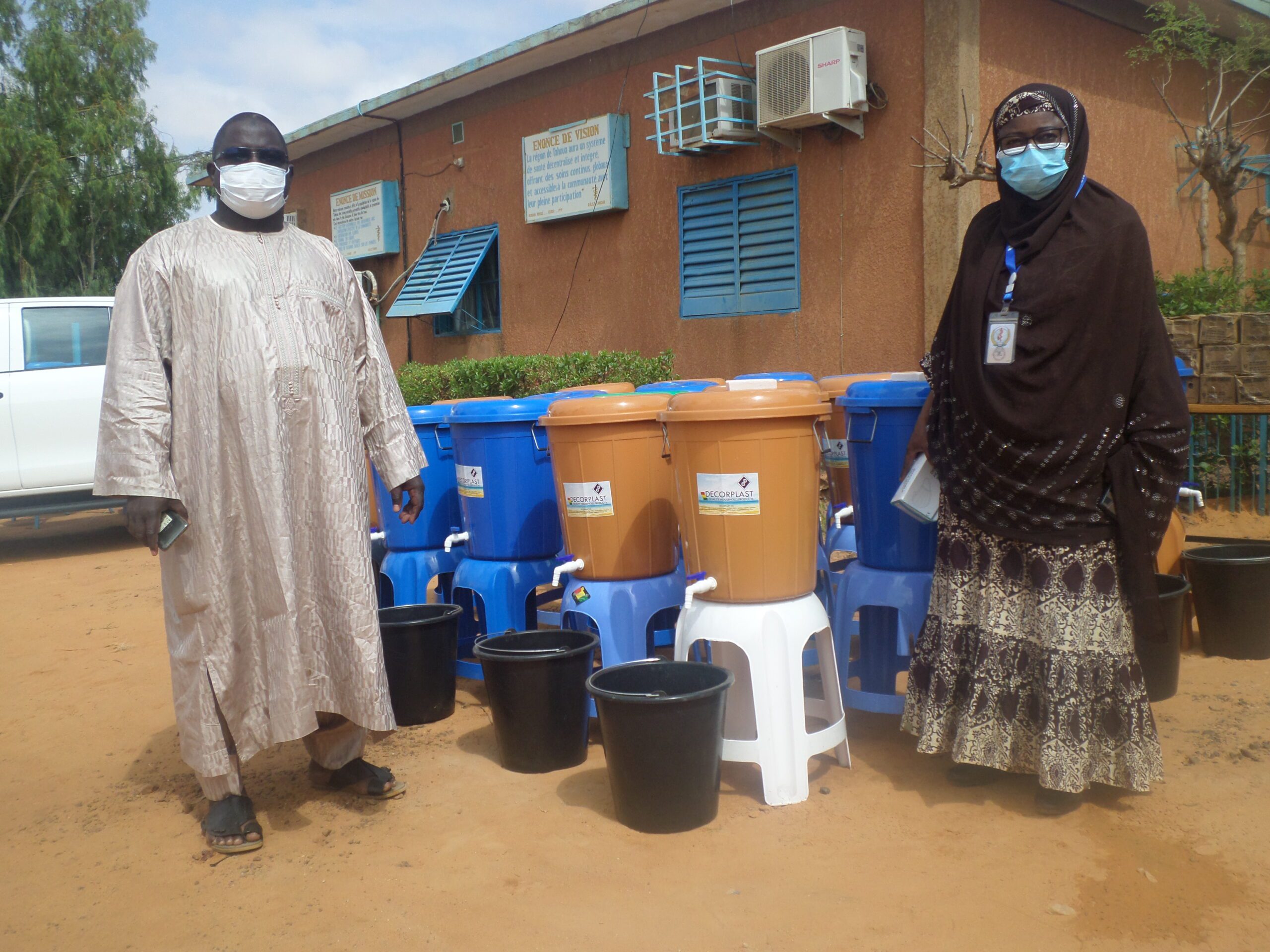
Increasing the number of publicly accessible clean water dispensers and soap has allowed us to safely reach communities at risk. It also ensures that community members can keep themselves safe.
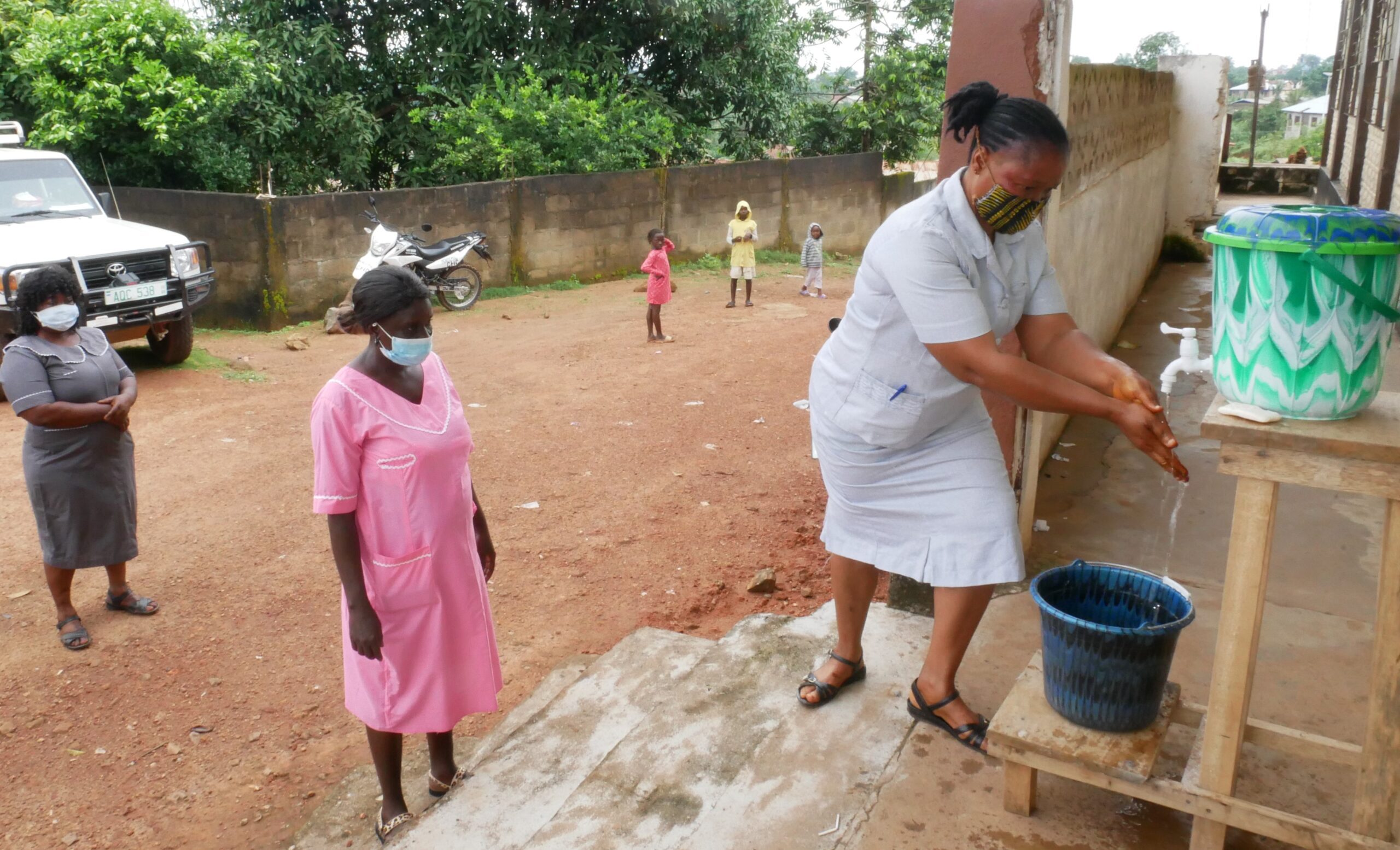
In Nigeria, the blinding bacterial infection, trachoma, is endemic. Helen Keller teams have successfully restarted trachoma surgeries, with stringent precautions against COVID-19. We have done this work with the support of the Commonwealth Fund and our partner, Sightsavers.
Providing Vision Care to Vulnerable Students and Adults
In the United States, we typically provide vision screenings and eyeglasses free of charge to low-income children and underserved adults. Under normal circumstances, we would reach the vast majority of people through schools.
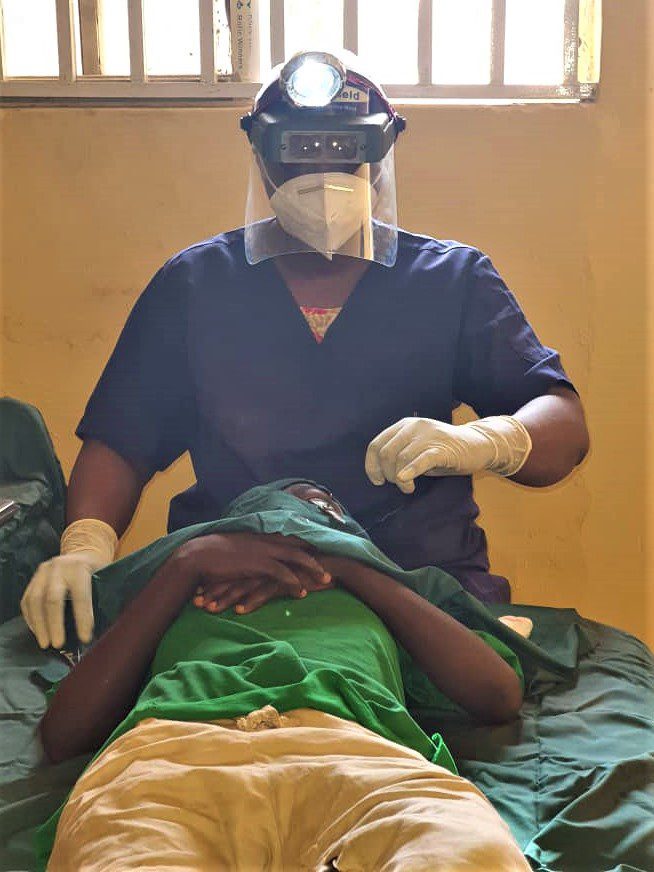
With many schools having shifted to distance learning, our U.S. Vision Program team has been extra resourceful. We have found new ways to screen vulnerable students and adults for much needed eyeglasses. Working with community-based programs, we have moved services outdoors whenever possible and implemented additional COVID-19 protective measures. We are now primarily reaching students, their families, and their communities by providing services in homeless shelters, public housing developments, and other community-based facilities. This has allowed us to deepen our work with vulnerable populations, including low-income seniors, underserved veterans, and recent immigrants and refugees.
Our New York and California programs resumed services in early October. New Jersey, Minnesota, and Texas will follow shortly.
We are grateful to have found new ways to safely reach the people we serve. We will continue to innovate and problem-solve as the pandemic evolves.
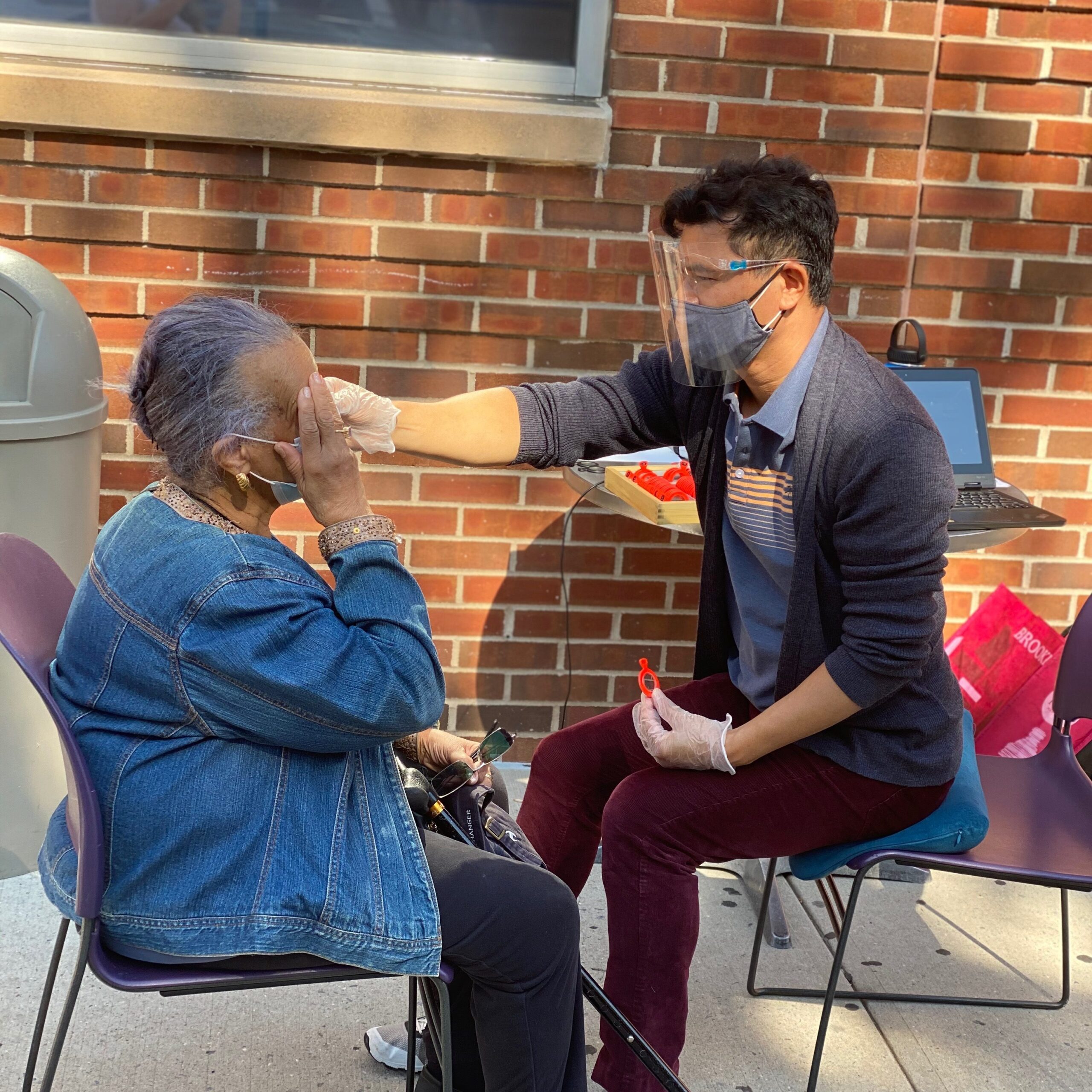
By the Numbers
- We have reached more than 5 million people with COVID-19 prevention messages in eight countries in Africa and Asia.
- We are distributing soap in many countries. To give an example, we provided nearly 300,000 bars of soap in Bangladesh and Sierra Leone, alone.
- We have provided cash support to more than 20,000 people.
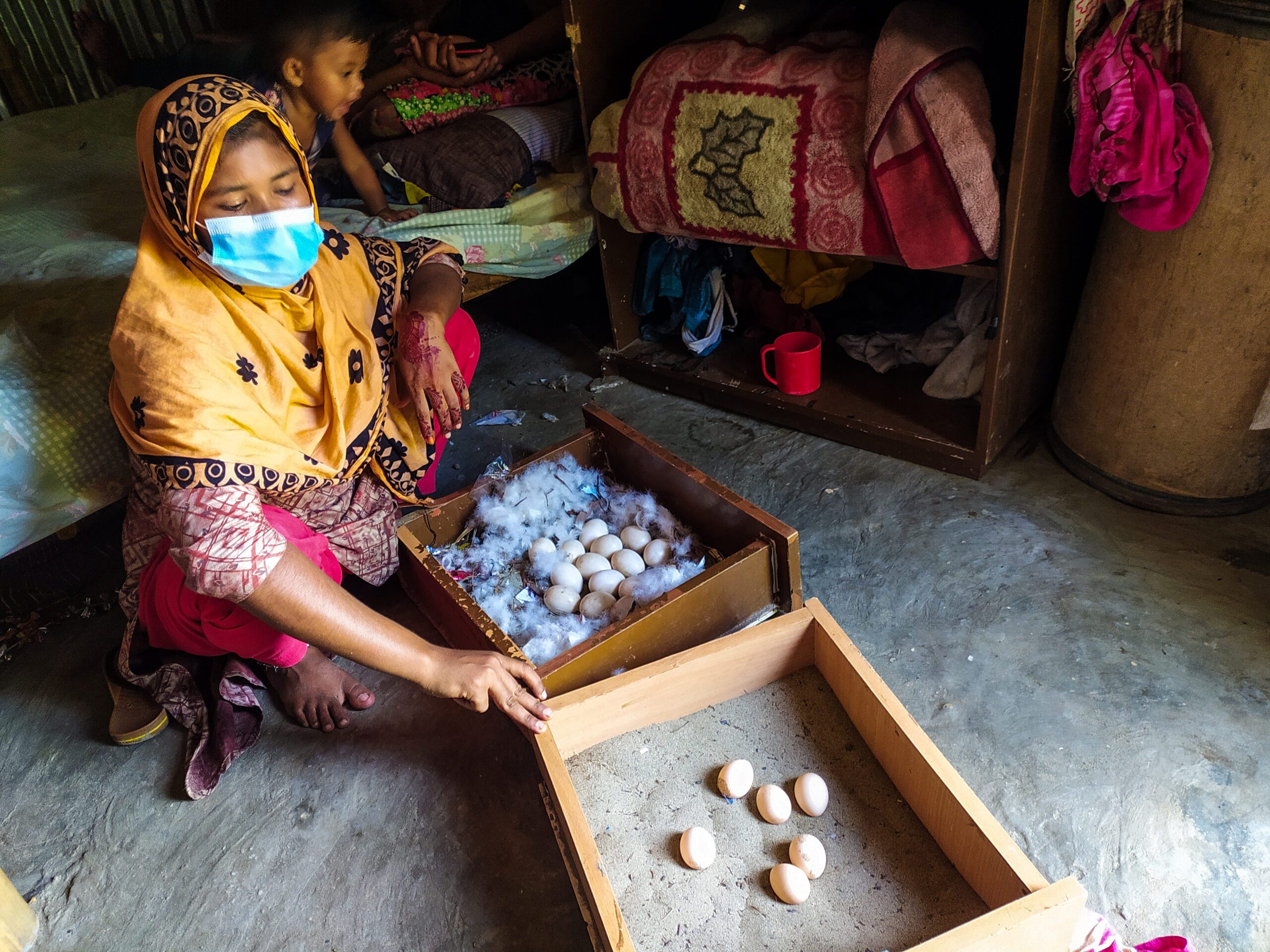
- We have provided seeds and saplings to more than 12,000 families.
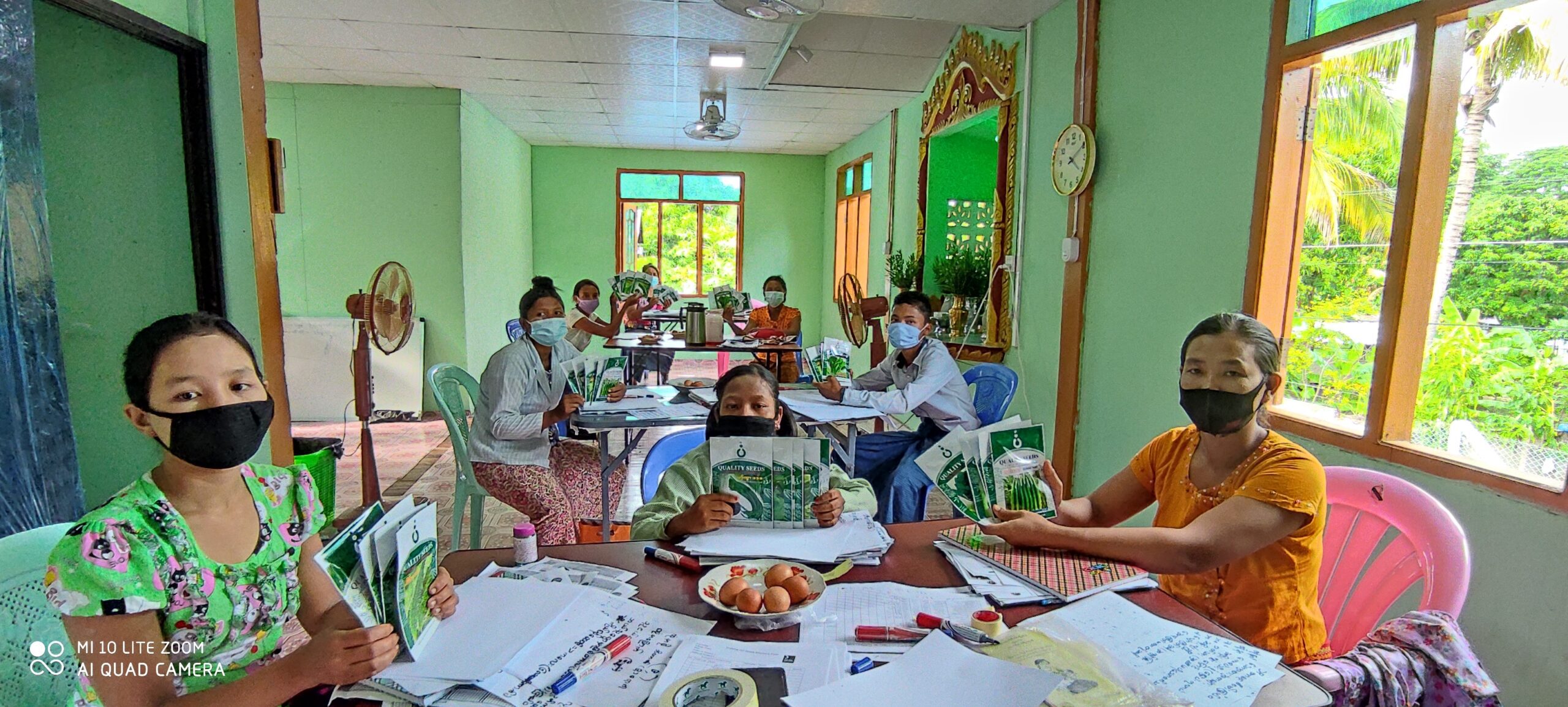
- We have installed more than 2,000 handwashing stations in Bangladesh and Senegal.
- We produced 26 instructional videos about how to stop the spread of the coronavirus and distributed them widely to communities across Bangladesh. Meanwhile, we produced fifteen instructional videos and nineteen radio broadcasts about COVID-19 in Nepal.









